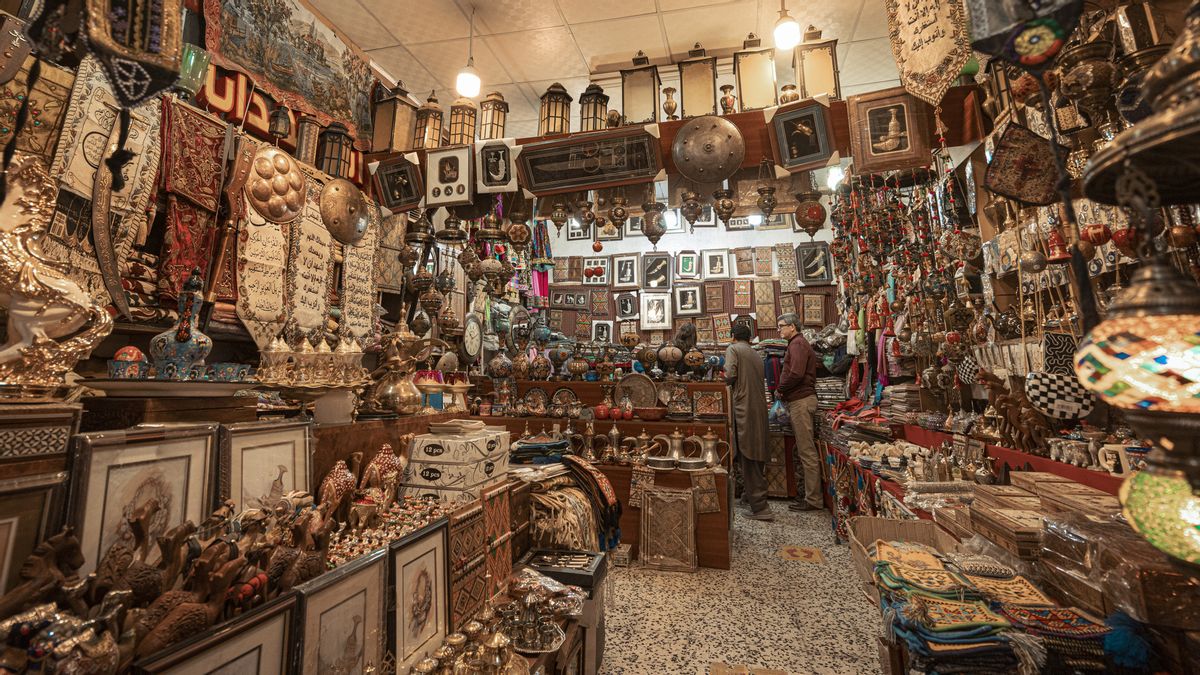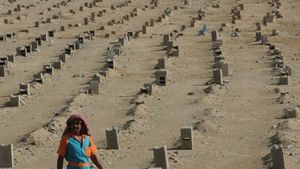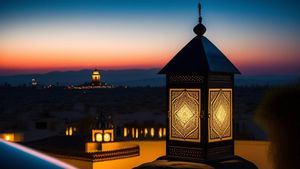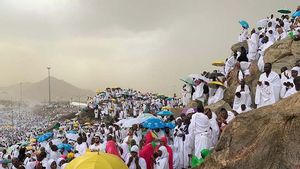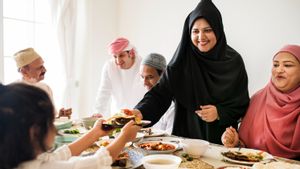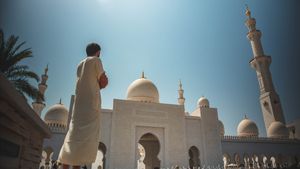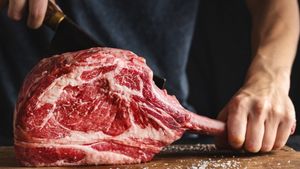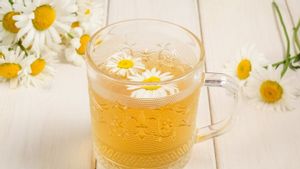JAKARTA - Exploring the festive soups in Saudi is a journey where you can feel the essence of rich and diverse Saudi traditions and traditions. Also known as the'souq', this traditional market offers buyers a unique blend of culture, history, and treasure that awaits to be found.
Here are some of the most famous souk in Saudi, each with its unique appeal.
Live across historic halls in Souk Al Alawi, the largest souk in Saudi which is a silent witness to Jeddah's rich legacy. Here, you can find a variety of items ranging from local produce and spices to authentic handicrafts and traditional clothing, as well as electronic goods and daily necessities that describe the wealth of Saudi cultural heritage.
Bring home historical memories such as jewelry, artwork, hand-made carpets, and colorful decoration items that will add to the elegant touch of Arabic in every room of yours. The view during the Hajj season is also extraordinary, when Souk Al Alawi is filled with crowds of visitors from all over the world.
What Must Be Purchased: Handicrafts, traditional clothing, home decorations
Location: Off Al Dahab St, Al Balad, Jeddah
In the Al-Dirah neighborhood, the heart of the city of Riyadh, about 5.4 km from the historic Al-Murabba Palace, you will find Souk Al Zal which covers an area of 38,000 square meters. This souk is one of the oldest traditional markets in Riyadh that has more than 100 historical years.
Explore the alleys and listen to the voice of the seller who enliven the atmosphere with the auction of his merchandise, taking you as if to return to the past of this city. This souk is famous for its antiques, rare coins, and furniture.
In addition, you can also find musical instruments, old record players, and hundreds of interesting items that seem to come from ancient people's traditional museums. There are shops selling ornamentalia, oud, and oriental perfume. There is also an auction of antiques held daily in the market for several hours after Asar prayers.
What Must Be Purchased: musky oud Parfum, handmade camel skin sandals, traditional artifacts such as Arabic coffee poci (dallah)
Location: Ad Dirah, Riyadh 12634
Close to the iconic Fort Al Masmak, it is located by Souk Diah, also known as Souk Al Thumari, a haven for lovers of relics and art. The halls of the chain of souk attract buyers with various local works of art, perfume, and handicrafts sold. When you traversate this souk, dive into a rich Saudi culture with unique relics that cannot be found elsewhere.
Don't leave this sonuk without enjoying the luxury of gold jewelry, which is designed with an exclusive design that is suitable for aristocrats.
Must Purchase: Perfume, local artwork, gold jewelry
Location: 3138 Abi Jafar Al Mansour St, Ghirnatah, Riyadh
Saudi Arabia is the second largest palm oil producer in the world, and Medina (or Medina) city is best known for its good and varied quality dates. These small fruits are delicious snacks and are an important part of the culture of Saudi date trees even become national symbols. Dates can also last a long time, so you can take them home to share a little souvenirs from Saudi to your friends and family.
Souk Al Tumor, the date market on Medina, is the most famous place to explore and place to buy dates in Saudi. With more than 150 types of dates, from locally growing Ajwa dates to rare and expensive Medjool, you will definitely find some that you like and many sellers will give you to try the tester first before buying it.
What Must Be Purchased: Various types Of dates
Location: 3 km south of Medina
Souk, also known as Qabil Street, Gabel Street, or Qabel Trail (on Google Maps), is the historic market, perhaps the oldest in Jeddah, and the city's first fully electric road. Currently, Souk Qabili is known as a festive cultural center, especially at night during Ramadan and Eid, Souk is filled with traditional food stalls and entertainment.
Although it is a small path, this is an important part if you visit Al Balad, Jeddah's old town, because it has many alternative roads or alleys that lead to museums such as Nassif House, Al Matbouli House, and Al Shafie Mosque that preserve the old town of Jeddah.
What Must Be Purchased: Gold, perfume, neglect, and other traditional clothes
Location: Jeddah Old Town
SEE ALSO:
Back in the past in Souk Qaisariah, a testament to the long-lasting spirit of Saudi traditions. Derived from three centuries ago, this souk in Al-Hasa invited visitors to sink into the scenery and charm of the past world. After experiencing post-fire restoration in 2000, Souk Qaisariah now stands as a tribute to his glorious past. In this souk you can find a mixture of spices, ornamental, and traditional Saudi handicrafts.
What Must Be Purchased: Spices, ornamental, traditional handicrafts
Location: King Abdul Aziz, Al Rafaa North, Al Hofuf
Adventured to the ancient city of Taif, And was able to find Souk Okaz who was enchanting and filled with Saudi cultural heritage. Initially Souk Okaz was an open market, which was able to bring visitors to the era of trade and past traditions. You can feel the wonders of the annual Festival at Souk Okaz, when reading poetry, stories, and cultural performances are displayed and in the spotlight. With more than 200 stores and 150 attractions across 14 million square meters, the extravaganza of this culture should not be missed during a visit to Saudi.
What Must Be Purchased: Handcrafts, traditional textiles, pottery, historical documents
Location: 40 km from Taif City, Taif
The English, Chinese, Japanese, Arabic, and French versions are automatically generated by the AI. So there may still be inaccuracies in translating, please always see Indonesian as our main language. (system supported by DigitalSiber.id)
